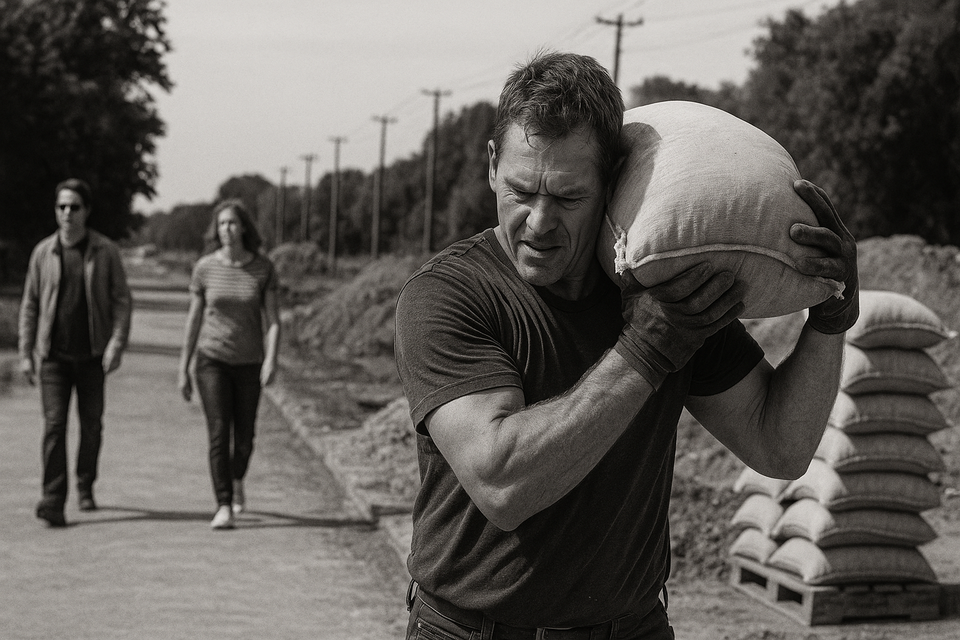An Ode to Discipline

Introduction: Against the Grain of the Moment
In an age obsessed with passion, motivation, and personal freedom, what Alessandro Baricco might call the aesthetics of surface and speed, discipline feels like an anachronism. It lacks glamour. It does not trend. It is difficult to condense into 280 characters.
Since the COVID-19 pandemic, a peculiar fragility has taken root and, with it, a culture of entitlement that treats discomfort as injustice and effort as oppression. As Jonathan Haidt has explored in The Coddling of the American Mind, we have begun to treat emotional discomfort as harm, and resilience as suspect. In such an environment, discipline is not only undervalued, it is sometimes pathologised.
As Jordan B. Peterson reminds us, “If you are disciplined and privilege the future over the present, you can change the structure of reality in your favour.” This truth, quietly radical in a world addicted to immediacy, anchors what follows.
Yet when life begins to fray, when motivation ebbs, when hope dims, it is discipline, not inspiration, that holds the line.
This article is not a eulogy for lost rigour. It is a call to remember: that in moments of disintegration, discipline is not constraint. It is rescue.
What Discipline Is (And Is Not)
Discipline is often mistaken for suppression or self-denial. But real discipline is not about punishment or deprivation. It is the deliberate construction of inner architecture, rules one chooses to obey even when no one is watching, especially when everything else is chaos. Over time, it ought to fuse with one’s identity, becoming so integral to daily rhythm that it no longer generates suffering, but instead provides relief. It becomes a default, not an effort. This internalisation marks a stage of growth: when discipline is no longer an imposition, but an expression of who one has become. Nowhere is this more evident than in craft. Whether one builds, writes, cooks, composes, or repairs, mastery demands repetition. Discipline is the scaffold that allows complexity to emerge, and quality to compound. It is what protects the sacred space where excellence is slowly, quietly made.
It is not about forcing productivity. It is the habit of alignment: of doing the necessary, the meaningful, the hard, regardless of whether one feels like it.
Discipline is:
- Getting up again when no progress is visible.
- Returning to a craft or practice long after novelty has worn off.
But why persist, especially when the world feels indifferent? Because discipline becomes indispensable precisely when nothing else does.
- Holding a boundary even when feeling lonely.
- Finishing what one started, not for outcome, but for coherence.
- Saying no to noise so the signal survives.
Why It Matters, Especially When Nothing Else Does
When depression flattens emotion, discipline still ticks. When the external world strips meaning from our efforts, discipline preserves a small sanctuary of order and dignity. It does not fix despair, but it resists the entropy of despair.
Discipline protects the future self when the present self cannot see beyond the next breath. And at a collective level, within teams, institutions, or companies, it preserves continuity. It ensures that essential functions carry on even when morale falters or external conditions destabilise. It is the architecture that allows resilience to scale.
It is also a mark of self-respect. To act with discipline is to affirm that one’s own actions matter, that one is worth showing up for. This inward stance radiates outward: it builds reliability, steadiness, and presence.
More tangibly:
- It makes healing possible by maintaining the vessel.
- It enables creativity by making room for depth.
- It sustains physical and mental health through consistency.
- It builds credibility with the self ... small, day by day.
- It can outlast motivation, which is transient.
- It restores agency when the world feels indifferent.
The Cultural Rejection of Discipline
Why is discipline so underappreciated? Because it does not offer quick rewards. It is slow. It is invisible.
We live in a dopamine economy, attention-grabbing, shortcut-selling, emotion-chasing. Discipline, by contrast, is stubborn and silent. It does not post. It does not notify. And so, it is forgotten.
Worse, we often conflate freedom with the absence of structure. But without discipline, freedom collapses into indulgence, and indulgence collapses into numbness. At a deeper level, the absence of discipline reflects something more troubling: a lack of courage and a quiet disrespect for others. When one repeatedly fails to show up, to follow through, or to carry weight, those gaps do not vanish. They fall upon others. Undisciplined behaviour shifts the burden. It quietly violates trust. It leaks into shared spaces and turns personal fragility into collective friction.
This manifests in ways that feel benign but corrode teamwork over time: consistently letting others take on the most complex tasks, avoiding customer-facing responsibilities, refusing to be part of on-call rotations, arriving unprepared for planning sessions. Each act, isolated, may seem minor. But together, they signal a withdrawal from shared responsibility.
Discipline, in contrast, is a form of respect. It ensures one carries their share, so others are not forced to carry more. The same principle extends to relationships. Emotional maturity like staying present in difficulty, listening with care, choosing stability over indulgence, also relies on discipline. Without it, closeness becomes volatility, and trust erodes.
This truth applies even more starkly to leadership. Discipline is not simply a personal virtue but a cultural anchor. Leaders who lack discipline do not merely harm themselves. They seed confusion and erosion. Undisciplined leadership multiplies volatility. Disciplined leaders, by contrast, create psychological safety through consistency. They model the very habits they hope others will embody. Beyond organisations, this applies to civic life as well. A functioning society depends not just on rules, but on the discipline of its participants: to pause before reacting, to contribute before criticising, to honour duties even when rights are in question. Without this, freedom collapses into fracture.
The freedom most worth having, freedom of action, freedom of thought, freedom to build a life, is earned through disciplined practice.
Building Discipline Gently, Permanently
Discipline is not military. It does not need to be brutal. But it must be non-negotiable. Here are three ways to cultivate it gently:
- Anchor One Thing. One promise per day. Keep it sacred. Let it be small. A stretch. A journal entry. A walk. One thing that says, I am still here.
- Design the Environment. Remove friction. Reduce decision fatigue. Make discipline easier to follow than to break.
- Make It About Identity. Not "I have to do this," but "I am the kind of person who does this." Discipline sticks when it reflects who one believes one is becoming.
Closing: The Dignity of the Unseen
Discipline will not save anyone but it will keep one intact long enough to be saved.
It will not solve the deeper crisis but it will preserve the soil in which a solution might someday grow.
And in the quiet moments, when one stands alone but unbroken, when no one claps and nothing changes, but one still does the right thing,
that is when discipline reveals its quiet, resolute grace.
Discipline is not the absence of freedom. It is the soil in which real freedom grows, freedom from chaos, from regret, from fragmentation. It is the cost of dignity and the currency of trust. And though it may never trend, it endures quietly, powerfully, in every life built with care.
Let others chase novelty. Let others wait for inspiration. The disciplined will be here, still standing, still building, when the storm has passed.





Member discussion